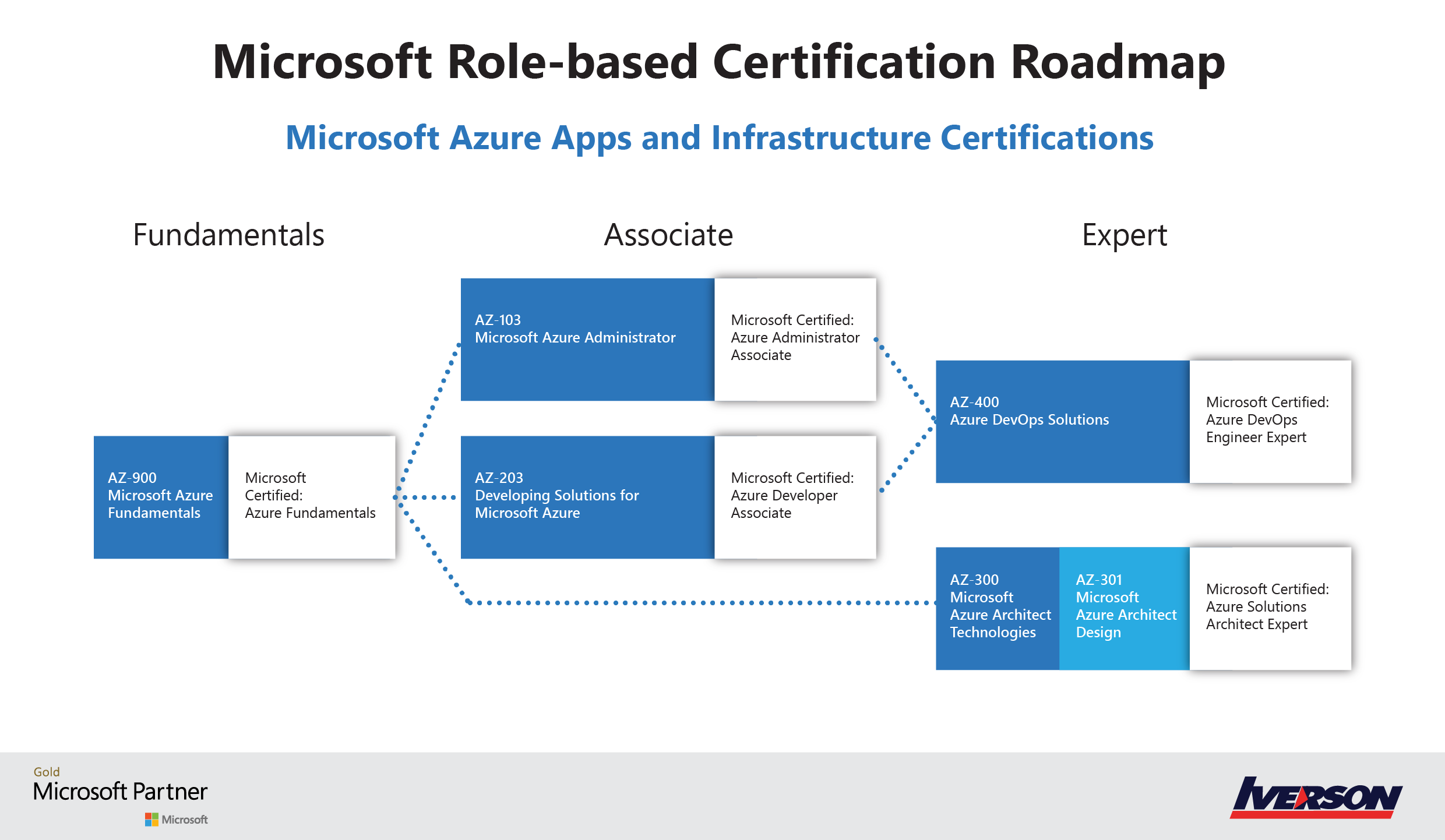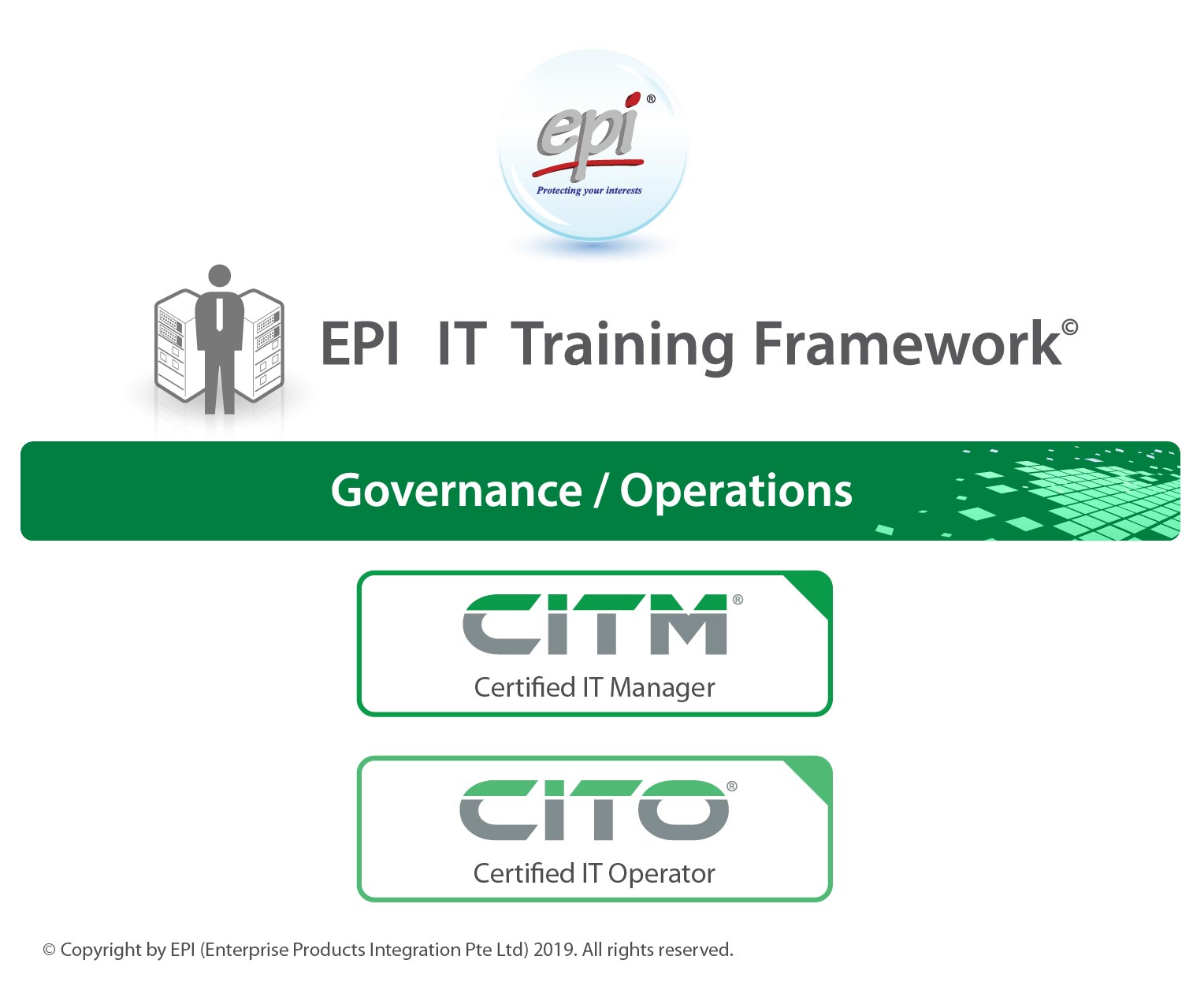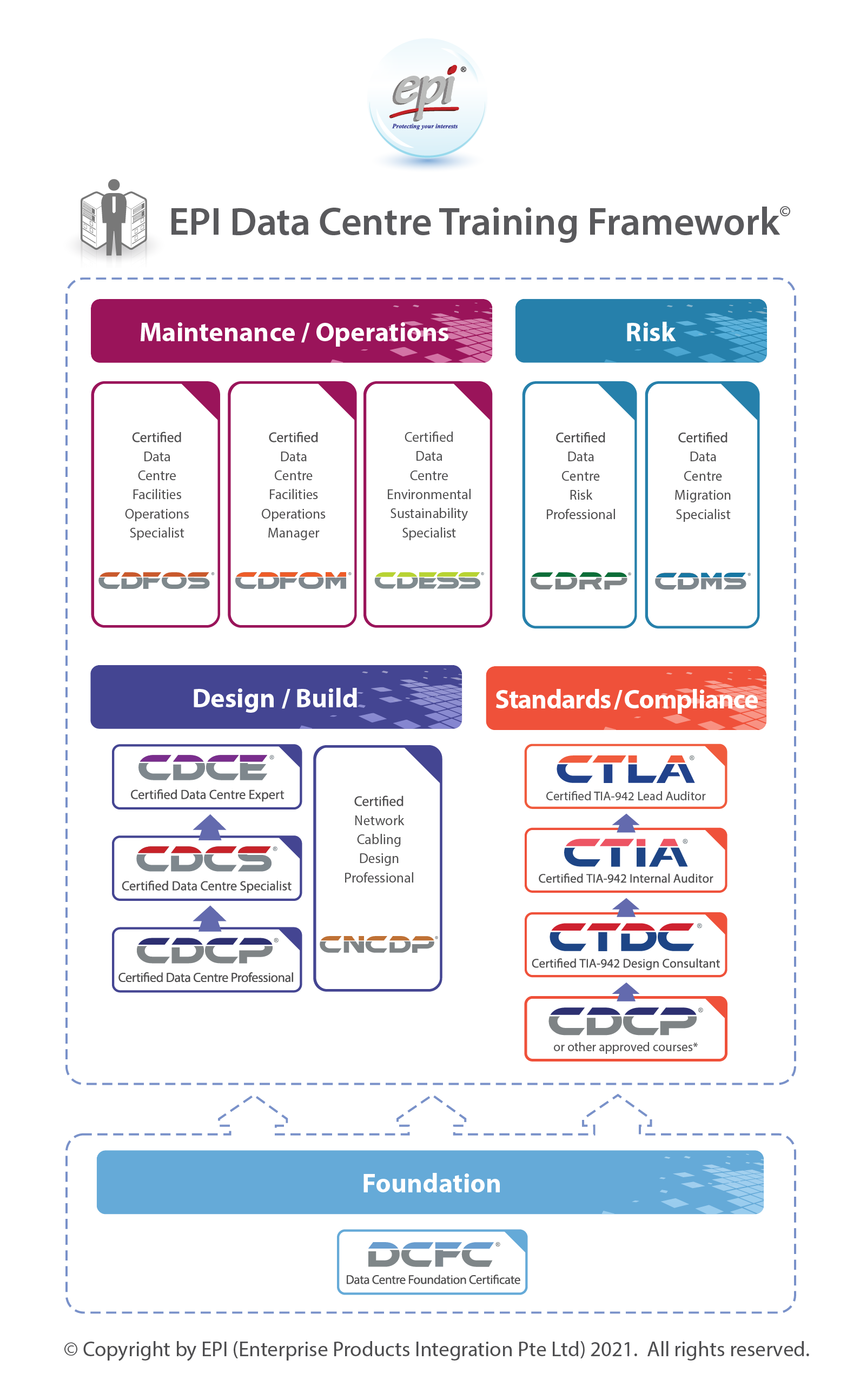Training with Iverson classes
Training is not a commodity – all training centres are not the same. Iverson Associates Sdn Bhd is the most established, the most reputable, and the top professional IT training provider in Malaysia. With a large pool of experienced and certified trainers, state-of-the-art facilities, and well-designed courseware, Iverson offers superior training, a more impactful learning experience and highly effective results.
At Iverson, our focus is on providing high-quality IT training to corporate customers, meeting their learning needs and helping them to achieve their training objectives. Iverson has the flexibility to provide training solutions whether for a single individual or the largest corporation in a well-paced or accelerated training programme.
Our courses continue to evolve along with the fast-changing technological advances. Our instructor-led training services are available on a public and a private (in-company) basis. Some of our courses are also available as online, on demand, and hybrid training.
This 4-day course offers hands-on experience with the major features of Spring and Spring Boot, which includes configuration, data access, REST, AOP, auto-configuration, actuator, security, and Spring testing framework to build enterprise and microservices applications. On completion, participants will have a foundation for creating enterprise and cloud-ready applications.
This course prepares students for the Spring Professional certification exam.
Additional Info
- Certification Course & Certificate
- Course Code CST
- Price RM9000
- Exam Price Exclude
- Exam Code 2V0-72.22
- Duration 4 Days
- CertificationInfo VMware Spring Certified Professional (VCP-Spring)
- Principals VMware
-
Schedule
22-25 Aug 2023
12-15 Dec 2023
-
Audience
Application developers who want to increase their understanding of Spring and Spring Boot with hands-on experience and a focus on fundamentals
-
Prerequisities
Some developer experience using Java, an IDE (Eclipse, STS or IntelliJ) and build tools such as Maven or Gradle.
-
At Course Completion
By the end of the course, you should be able to meet the following objectives:
- Spring configuration using Java Configuration and Annotations
- Aspect oriented programming with Spring
- Testing Spring applications using JUnit 5
- Spring Data Access - JDBC, JPA and Spring Data
- Spring Transaction Management
- Simplifying application development with Spring Boot
- Spring Boot auto-configuration, starters and properties
- Build a simple REST application using Spring Boot, embedded Web Server and fat JARs or classic WARs
- Implementing REST client applications using RestTemplate
- Utilize Spring Boot enhancements to testing
- Spring Security
- Enable and extend metrics and monitoring capabilities using Spring Boot actuator
- Module 1 Title Spring Overview
-
Module 1 Content
• What is the Spring Framework?
• The DI Container
• The Spring Framework History and EcoSystem - Module 2 Title Java Configuration
-
Module 2 Content
• Java configuration and the Spring application context
• @Configuration and @Bean annotations
• @Import: working with multiple configuration files
• Defining bean scopes
• Launching a Spring Application and obtaining Beans - Module 3 Title More Java Configuration
-
Module 3 Content
• External properties & Property sources
• Environment abstraction
• Using bean profiles
• Spring Expression Language (SpEL) - Module 4 Title Annotation and Component Scanning
-
Module 4 Content
• Component scanning
• Autowiring using @Autowired
• Java configuration versus annotations, mixing.
• Lifecycle annotations: @PostConstruct and @PreDestroy
• Stereotypes and meta-annotations - Module 5 Title Inside the Spring Container
-
Module 5 Content
• The Spring Bean Lifecycle
• The BeanFactoryPostProcessor interception point
• The BeanPostProcessor interception point
• Spring Bean Proxies
• @Bean method return types - Module 6 Title Introducing Aspect-oriented programming
-
Module 6 Content
• What problems does AOP solve?
• Defining pointcut expressions
• Implementing various types of advice - Module 7 Title Testing a Spring-based Application
-
Module 7 Content
• Spring and Test-Driven Development
• Spring 5 integration testing with JUnit 5
• Application context caching and the @DirtiesContext annotation
• Profile selection with @ActiveProfiles
• Easy test data setup with @Sql - Module 8 Title JDBC Simplification with JdbcTemplate
-
Module 8 Content
• How Spring integrates with existing data access technologies
• Spring‘s JdbcTemplate
• DataAccessException hierarchy - Module 9 Title Transaction Management with Spring
-
Module 9 Content
• Transaction overview
• Transaction management with Spring
• Transaction propagation and rollback rules
• Transactions and integration testing - Module 10 Title Spring Boot Feature Introduction
-
Module 10 Content
• Introduction to Spring Boot Features
• Value Proposition of Spring Boot
• Creating a simple Boot application using Spring Initializer website - Module 11 Title Spring Boot – A closer look
-
Module 11 Content
• Dependency management using Spring Boot starters
• How auto-configuration works
• Configuration properties
• Overriding auto-configuration
• Using CommandLineRunner - Module 12 Title Spring Boot – Spring Data JPA
-
Module 12 Content
• Quick introduction to ORM with JPA
• Benefits of using Spring with JPA
• JPA configuration in Spring
• Configuring Spring JPA using Spring Boot
• Spring Data JPA dynamic repositories - Module 13 Title Web Applications with Spring Boot
-
Module 13 Content
• Introduction to Spring MVC and request processing
• Controller method signatures
• Using @Controller, @RestController and @GetMapping annotations
• Configuring Spring MVC with Spring Boot
• Spring Boot packaging options, JAR or WAR - Module 14 Title RESful Application with Spring Boot
-
Module 14 Content
• An introduction to the REST architectural style
• Controlling HTTP response codes with @ResponseStatus
• Implementing REST with Spring MVC, @RequestMapping, @RequestBody and @ResponseBody
• Spring MVC’s HttpMessageConverters and automatic content negotiation - Module 15 Title Spring Boot Testing
-
Module 15 Content
• Spring Boot testing overview
• Integration testing using @SpringBootTest
• Web slice testing with MockMvc framework
• Slices to test different layers of the application - Module 16 Title Securing REST Application with Spring Security
-
Module 16 Content
• What problems does Spring Security solve?
• Configuring authentication
• Implementing authorization by intercepting URLs
• Authorization at the Java method level
• Understanding the Spring Security filter chain
• Spring security testing - Module 17 Title Actuators, Metrics and Health Indicators
-
Module 17 Content
• Exposing Spring Boot Actuator endpoints
• Custom Metrics
• Health Indicators
• Creating custom Health Indicators
• External monitoring systems
Master the skills needed to design solutions that run on Azure. A Microsoft Azure solution architect must have expertise in compute, network, storage, and security.
Microsoft Azure Architect Technologies (Part of requirements for Microsoft Azure Solutions Architect)
Recommended Training
- Deploying and Configuring Infrastructure (AZ-300T01)
- Implementing Workloads and Security (AZ-300T02)
- Understanding Cloud Architect Technology Solutions (AZ-300T03)
- Creating and Deploying Apps (AZ-300T04)
- Developing for the Cloud (AZ-300T06)
Microsoft Azure Architect Design (Part of requirements for Microsoft Azure Solutions Architect)
Recommended Training
- Designing for Identity and Security (AZ-301T01)
- Designing a Data Platform Solution (AZ-301T02)
- Design for Deployment, Migration, and Integration (AZ-301T03)
- Designing an Infrastructure Strategy (AZ-301T04)
Additional Info
- Certification Course & Certificate
- Exam Price Exclude
- CertificationInfo Microsoft Certified Azure Solutions Architect Expert
- Principals Microsoft
Microsoft Azure Developers design, build, test, and maintain cloud solutions, such as applications and services, partnering with cloud solution architects, cloud DBAs, cloud administrators, and clients to implement these solutions.
Recommended Training
Take Exam AZ-203: Developing Solutions for Microsoft Azure
This exam measures your ability to accomplish the following technical tasks: develop Azure Infrastructure as a Service compute solutions; develop Azure Platform as a Service compute solutions; develop for Azure storage; implement Azure security; monitor, troubleshoot, and optimize solutions; and connect to and consume Azure services and third-party services.
- Develop Azure Infrastructure as a Service compute solutions (10-15%)
- Develop Azure Platform as a Service compute solutions (20-25%)
- Develop for Azure storage (15-20%)
- Implement Azure security (10-15%)
- Monitor, troubleshoot, and optimize solutions (10-15%)
- Connect to and consume Azure services and third-party services (20-25%)

Email This email address is being protected from spambots. You need JavaScript enabled to view it. for exam scheduling or call us at +603 7726 2678 for more information.
Additional Info
- Certification Course & Certificate
- Exam Price Exclude
- CertificationInfo Microsoft Certified Azure Developer Associate
- Principals Microsoft
Azure Administrators implement, monitor, and maintain Microsoft Azure solutions, including major services related to computing, storage, network, and security. Get certified today.
Recommended Training
Take Exam AZ-104: Microsoft Azure Administrator
This exam measures your ability to accomplish the following technical tasks: manage Azure subscriptions and resources; implement and manage storage; deploy and manage virtual machines (VMs); configure and manage virtual networks; and manage identities.
- Manage Azure subscriptions and resources (15-20%)
- Implement and manage storage (15-20%)
- Deploy and manage virtual machines (VMs) (15-20%)
- Configure and manage virtual networks (30-35%)
- Manage identities (15-20%)
Email This email address is being protected from spambots. You need JavaScript enabled to view it. for exam scheduling or call us at +603 7726 2678 for more information.
Additional Info
- Certification Course & Certificate
- Exam Price Exclude
- Principals Microsoft
The first step to validate technical knowledge and competency is to become a Veritas Certified Specialist (VCS) based on your specific area of product expertise with Veritas products. To achieve this level of certification, candidates must pass one proctored VCS exam based on a combination of Veritas training material, commonly referenced product documentation, and real-world job tasks.
Administration of Veritas NetBackup
Although each product varies in complexity and depth of technical knowledge, all certification exams target customers in an administrative role, cover core elements measuring technical knowledge against factors such as configuration, product administration, day-to-day monitoring, maintenance, and basic troubleshooting (diagnosis and/or repair).
This program consists of technical exams at a product/version level that validate that the successful candidate has knowledge and skills necessary to configure and maintain NetBackup
Passing this exam will result in a Veritas Certified Specialist (VCS) certification and counts towards the requirements for a Veritas Certified Professional (VCP) certification in Data Protection.
Recommended Training
Note: If you do not have prior experience with this product, it is recommended that you complete an in-person, classroom training or Virtual Academy virtual classroom training class in preparation for the VCS exam. Be cautioned that attendance in a training course does not guarantee passage of a certification exam.
Recommended preparation steps:
- Exam Preparation Guide (PDF): Download and review the guide to understand the scope of topics covered in the certification exam and how they map to the key lessons and topics in the associated training course(s).
- Attend recommended training classes listed above.
- Gain hands-on experience with the product. 6-9 months experience administering NetBackup 8.1.x is recommended.
- Sample Exam (PDF): Test yourself and your exam-taking skills using the sample exam.
Additional Info
- Certification Course & Certificate
- Exam Price Exclude
- CertificationInfo Veritas Certified Specialist (VCS) NetBackup
- Principals Veritas
The first step to validate technical knowledge and competency is to become a Veritas Certified Specialist (VCS) based on your specific area of product expertise with Veritas products. To achieve this level of certification, candidates must pass one proctored VCS exam based on a combination of Veritas training material, commonly referenced product documentation, and real-world job tasks.
VCS-325: Administration of Veritas Backup Exec 20.1
Although each product varies in complexity and depth of technical knowledge, all certification exams, targeting customers in an administrative role, cover core elements measuring technical knowledge against factors such as installation, configuration, deployment, product administration, management, day-to-day maintenance, and basic troubleshooting.
The program consists of the Backup Exec 20.1 technical exam at a product/version level that validates the successful candidate has the knowledge and skills necessary to successfully administer Backup Exec 20.1.
Passing this exam will result in a Veritas Certified Specialist (VCS) certification and counts towards the requirements for a Veritas Certified Professional (VCP) certification in Data Protection.
Recommended Training
- Veritas Backup Exec 20.1: Administration
Note: If you do not have prior experience with this product, it is recommended that you complete an in-person, classroom training or Virtual Academy virtual classroom training class in preparation for the VCS exam. Be cautioned that attendance in a training course does not guarantee passage of a certification exam.
Recommended preparation steps:
- Exam Preparation Guide (PDF): Download and review the guide to understand the scope of topics covered in the certification exam and how they map to the key lessons and topics in the associated training course(s).
- Attend recommended training classes listed above.
- Gain hands-on experience with the product. 6-9 months experience working with Backup Exec in a production or lab environment is recommended.
- Sample Exam (PDF): Test yourself and your exam-taking skills using the sample exam.
Additional Info
- Certification Course & Certificate
- Exam Price Exclude
- CertificationInfo Veritas Certified Specialist (VCS) Backup Exec
- Principals Veritas
The EPI IT Training Framework© is the first and only vendor-neutral competency-based IT Training Framework in the world for IT professionals to keep up-to-date and remain relevant in this fast-paced and increasingly complex industry. It is also the first and only IT Training Framework aligned to the European e-Competence Framework (e-CF).
The EPI IT Training Framework© offers a career track at Two levels:
An IT professional can enter the track at any level upon meeting the pre-requisite on a number of years' experience.

Additional Info
- Certification Course & Certificate
- Exam Price Exclude
- CertificationInfo EPI IT Training Framework
- Principals EPI
- Extra Button Download EPI IT Training Framework Brochure
Data Center facility infrastructure design, management, operations and compliance to standards play an important role in many organizations. Minimizing, or avoiding downtime and improving efficiency are top priorities and hence being able to rely on educated staff becomes a key factor for data center managers all over the world.
The EPI data center training courses are certification courses. Designed for data center professionals, they are mapped in the EPI Data Center Training Framework©. The framework has a foundation training course and 4 tracks:
- Foundation
- Design / Build
- Maintenance / Operations
- Risk
- Standards / Compliance

Additional Info
- Certification Course & Certificate
- Exam Price Exclude
- CertificationInfo EPI Data Centre Training Framework
- Principals EPI
- Extra Button Download EPI Data Centre Training Framework Brochure
The Salesforce Certified Marketing Cloud Email Specialist credential is designed for those who can demonstrate knowledge, skills, and experience in email marketing best practices -- including message design, subscriber and data management, inbox delivery, and external integrations -- with the Marketing Cloud Email application.
Here are some examples of the concepts you should understand to pass the exam:
- Build relational data models
- Send emails via Email application sending methods
- Build complex email automations
- Run reports of email tracking data
- Troubleshoot and solve basic platform issues
- General knowledge of email marketing terminology and best practices
Recommended Training
Additional Info
- Certification Course & Certificate
- Exam Price Exclude
- CertificationInfo Salesforce Certified Marketing Cloud Email Specialist
- Principals Salesforce
The Salesforce Certified Platform App Builder credential is designed for those who can demonstrate skills and knowledge in designing, building, and implementing custom applications using the declarative customization capabilities of the Lightning Platform.
Here are some examples of the concepts you should understand to pass the exam:
- Design the data model, user interface, business logic, and security for custom applications
- Customize applications for mobile use
- Design reports and dashboards
- Deploy custom applications
Recommended Training
Additional Info
- Certification Course & Certificate
- Exam Price Exclude
- CertificationInfo Salesforce Certified Platform App Builder
- Principals Salesforce
PMP, Project Management Professional (PMP), CAPM, Certified Associate in Project Management (CAPM) are registered marks of the Project Management Institute, Inc.
